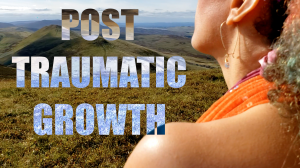An excerpt from my participatory research, following the experience of a young person at the Center for Adolescent Mental Health, and supporting them in turning their advice to a music video.
Mental health is a positive.
That’s what Sam* told me at the Centre for Adolescent Mental Health (CAMHS), where I often work as a part of my PhD research. Sam was answering my question, “What have you learned here that could have helped you more if you’d learned it before you came here?”
“Mental health is a positive.”
“And what does that mean to you?” I asked.
“Coming to CAMHS to work on my mental health, at first, I thought it was something negative. Like something was wrong with me. But I learned that the hard times I’ve gone through could actually be positive.They made me grow,” Sam explained. “The pain and the challenges helped me learn how to take care of myself and accept who I am in a deeper way.”
*Sam, who chose this gender and ethnicity-masking pseudonym themselves, is talking about Post Traumatic Growth, or PTG.
We’ve all heard about PTSD, post traumatic stress disorder, which occurs when trauma debilitatingly victimizes a person. With the popularity of PTSD in our media, we learn that trauma—an intensely distressing or painful occurrence—is a horrible experience which is always unfortunate.
 But many studies indicate that after a traumatic experience, some people report growth: deeper and more meaningful connections with other people, a stronger sense of gratitude, a positive change of priorities, and a richer outlook on life. In the 1990’s, psychologists, Richard Tedeschi and Lawrence Calhoun, gave it a title: Post Traumatic Growth.
But many studies indicate that after a traumatic experience, some people report growth: deeper and more meaningful connections with other people, a stronger sense of gratitude, a positive change of priorities, and a richer outlook on life. In the 1990’s, psychologists, Richard Tedeschi and Lawrence Calhoun, gave it a title: Post Traumatic Growth.
Sam and I read the research together. Sam was convinced that spreading awareness of PTG could profoundly impact how young people process and evolve through trauma, changing the course of their lives forever. “How do we reach other young people with this message?” I asked. I believe that youth are the experts of their own experience. If getting this message out to young people is the goal, it’s them who will make that happen. And that’s how this melodic documentary was born.
Following Sam’s choice of two favorite music pieces, we mixed a track out of Billie Eilish’s “My Future” with Beethoven’s “Für Elise”. Then Sam wrote a spoken word piece, concluding “What words do we want to echo in people’s minds?” Sam read out parts of it in spoken word style, and suggested I sing the other sections. Then Amy Hardie, my PhD supervisor, clarified that “Mental health is a positive” was a bit general. Sam thought about it a bit, and suggested the following:
Mental obstacles can enlighten you.
With the goal to make important research on PTG more engaging, interesting and accessible to other young peers, Sam took the lead as director of this short musical documentary. We captured original video footage and combined it with inspirational and artful imagery, such as Sam’s hands moving Jenga blocks; lilac flowers by the mirror in their room; a mountain; a caterpillar; and a clock by Sam’s desk.
So here you have it: The full music video,directed by an anonymous 16-year old, Sam; a self-declared “patient patient” at a CAMHS hospital in the UK, and supported by a PhD psychology researcher and musician.
Sam and I would so much appreciate it if you gave us your feedback; What did you like? How can we do better? How does it make you feel about your life?
Our video is posted in the forum linked below, with a few questions. Your comments mean a lot to us:
https://forms.office.com/r/QZPQGVRDuC
Also, if you’d like to hear Sam and I chatting about our experience in an interview at East Lothian CAMHS Talk, you can find it linked to the video on YouTube as well. YouTube is attached to the form, linked above.
————–
Actual YouTube link
https://www.youtube.com/watch?v=8c9pd51DsPk
CAMHSTalk link
https://camhstalk.blubrry.net/2021/12/14/episode-32-music-and-mental-health/
Song on Spotify
https://open.spotify.com/track/1cxZuzMxXAewxLJzignJaM?si=9c52911576924950





